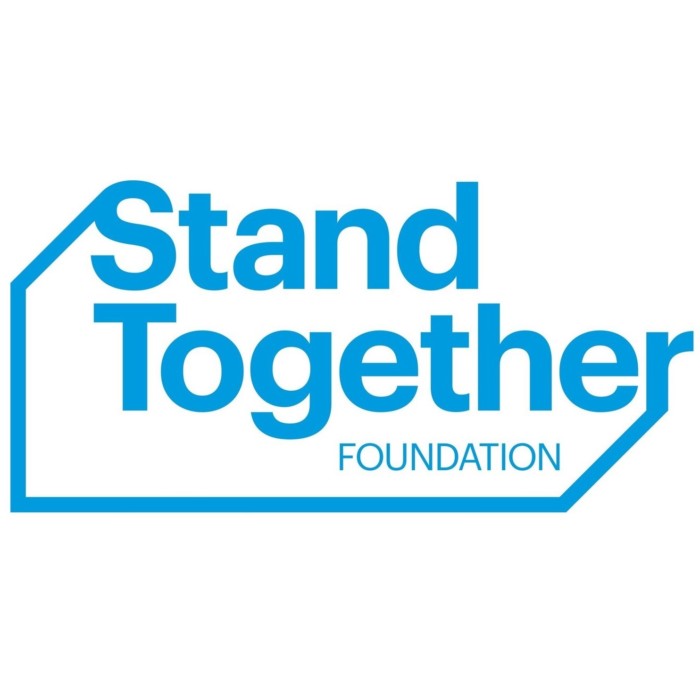-
0.1Vision
Every learner deserves unlimited unbundled opportunities to explore, engage and define experiences that advance their progress along a co-designed educational pathway.
-
0.2Introduction
Since the advent of formal education, learning has been bundled. The time for change is now.
-
0.3Definitions
In order to shift to a truly unbundled system of learning, we must get some clarity and alignment on some core terms.
-
0.4Principles
Six core principles guide the unbundled system. As each element of the system is built, designers should evaluate and reflect around these core principles.
-
0.5Elements
For an unbundled system to meet all of the core principles, core structural elements must exist. A fully decentralized education system would entail a distributed set of learning experiences to which any education creator might contribute.
-
1.0
-
1.1Unbundling the Ecosystem
Unbundling the learning ecosystem occurs at the policy and systems level. Policy includes laws and rules that allow for unbundled learning. Systems are structures that support unbundled learning.
-
1.2Building Competencies
Most typical education ecosystems require permission. A fully unbundled ecosystem may be permissionless, that is a student can choose whatever pathway they like with whomever they would like and learn whatever they would like.
-
1.3Designing Learning Experiences
Unbundled systems need to decrease the grain size to the learning experience level so that learners can build pathways that make sense relative to their future goals by reassembling a set of learning experiences.
-
1.4Curating the Opportunities
Once the ecosystem is unbundled, the opportunities must be curated in an equitable, accessible format. A variety of efforts exist to begin to move this unbundled curation system forward.
-
1.5Rebundling Learning
Learners in partnership with coaches co-design and bundle learning experience pathways that consist of content access, skill development, instruction, and assessment from a variety of sources.
-
2.0
-
2.1Learner and Employment Records
Each learner must have a Learning and Employment Record (LER). These records, likely built on blockchain technology and stored on a digital wallet, document any learning experiences where a learner has shown proficiency around a set of competencies or earned a credential or certification.
-
2.2Learning Experience Marketplace
Structures must be built to support the marketplace. This is feasible within the parameters of both Web2 and Web3.
-
6.0
-
6.1Challenges
Very few systems have completely unbundled. Some core challenges still remain.
-
6.2Recommendations
Solutions already exist in the ecosystem and need to be combined and scaled.
-
6.3Feedback
We’d love it if you’d leave us a little feedback about this publication!


Authors & Gratitude
This paper was authored by Nate McClennen with contributions from the Getting Smart team and numerous friends and partners in the field. Much of the video content has been taken from our ongoing Getting Smart Town Halls, podcasts and more. It is also a part of our New Pathways campaign.
The production of this publication was made possible with generous support by Stand Together.
Vision
Every learner deserves an unlimited number of unbundled opportunities to explore, engage, and define experiences that advance their progress along a co-designed educational pathway. Each pathway provides equitable and personalized access to stacked learning experiences leading to post-secondary credentials and secure family-sustaining employment. Throughout the journey, supportive coaches focus on helping learners build skills to navigate with agency. In parallel, learners develop foundational skills (literacy, math), technical skills, and durable skills and connect these to challenging co-designed experiences. The breadth and depth of experiences increase over time, and, in partnership, learners and coaches map progress towards reaching community-defined goals. This vision is only enabled by an unbundled learning ecosystem.
Introduction
Press play for an audio overview of Unbundled Learning
Since the advent of formal education, learning has been bundled. Most students attend schools and follow a prescriptive curriculum determined by the school, state, or other governing body. The curriculum is bundled together via classes or courses, and once the student has completed each of these at a satisfactory level, the authorizing body grants a credential.
However, even within a constrained system such as this, unbundled opportunities exist at various levels of granularity. At the classroom level, except in the most prescriptive programs, educators draw on a variety of resources and develop learning experiences from different sources. In this way, the classroom experience is often unbundled.
At the course level, high school students often can choose courses that best serve their interests. Despite typically being within a constrained system (such as a comprehensive school), learners have choices to bundle different elements to meet their needs. The larger the school, the greater the variation of choices.
An unbundled system provides more personalized and relevant learning experiences for all students at the learning experience level. When the system can build structures that allow young people to meet competencies and standards in a variety of ways from a variety of sources at the learning experience level, conditions for success increase. In this publication, we articulate the critical steps needed to unbundle the learning ecosystem, build core competencies, design learning experiences, curate new opportunities, and rebundle these experiences into coherent pathways.
Throughout, we share a landscape view of the unbundled system through examples of emerging models and technology solutions to support unbundled ecosystems. Finally, we discuss challenges and recommendations.
As we explore the landscape, we also emphasize possibility, sharing examples of the public system flexing, modifying, and adjusting to develop a more unbundled system that better accommodates a more personalized learning journey for every student.
This video with Karen Pittman, from a Getting Smart Town Hall, is a fantastic overview of what an ecosystem of learning could look like.
Definitions
Learning Experience (LX)
Any experience that supports a learner to develop a particular skill, outcome or competency.
Learning Experience Pathway (LXP)
A personalized pathway of competency-linked learning experiences designed for and/or by individual learners.
Unbundled Learning
Unbundled learning allows students to choose, co-design, or create learning experiences using both in-system and out-of-system providers that all count towards meeting credential requirements (diploma, certificate, etc.).
In-System
Learning experiences that are offered through or sponsored by comprehensive school programs via local education agencies.
Out-of-system
Learning experiences that are offered by non-profit organizations, businesses, governments, or individuals (i.e. home-school).
Permisionless
Systems that allow learners to choose or build learning experiences without first securing approval from another entity or individual.
Principles
Intentional
Unbundled systems have intentional design that provide meaninful and connected learning experiences for all. Suggested career connected pathways and community contribution create strong foundations for unbundled systems.
Equitable
When educational systems are unbundled and rebundled they must both be accessible to all learners and connect to the context, cultures and environments of learners.
Ownership
Learners co-design the learning experience in partnership with a supportive and informed coach.
Impact
Rebundled learning experiences focus on purpose and impact. Contextualized real-world learning build into rebundled systems in parallel to proficiency on foundational literacies, transferable skills, and technical skills increases success in bundled real-world experiences.
Interoperable
The unbundled system depends on core tool building blocks that learners, coaches, and designers can re-use and re-purpose to build the most personalized learner pathway. These building blocks are any LX that can be recombined and reorganized.
Decentralized
While the school building may be the location of some learning experiences, it does not have to be for every learner. When we decentralize learning to incorporate both real-world and digital experiences offered by an infinite number of providers, we better meet the neuro-diversity of humans when they learn.
Elements
For an unbundled system to meet all of the core principles, core structural elements must exist. A fully decentralized education system entails a distributed set of learning experiences to which any education creator might contribute. LX designers (whether individuals or organizations) would build and launch options for learning any topic or any skill. Students would co-design the pathway that satisfies proficiency requirements (presumably set by local or state governments) built on an infinite number of choices.
Learning Experience Marketplace
Anyone can build content/share an LX in any form. These learning experiences must be easy to access and search. For the last thirty years, open educational resources (such as Khan Academy, MIT OpenCourseWare, Connexions, and NROC HippoCampus) have provided unbundled learning. Outschool provides an early example of this (albeit within a single modality of video mentorship and instruction) by offering up 10,000+ instructors to millions of learners worldwide. Teachers Pay Teachers is also an early learning marketplace that focuses on curricular lessons rather than instruction. Finally, there are a number of course/credential aggregators or universities such as Stepmojo, ASU Universal Learner Courses, and SNHU that provide virtual experiences—sometimes disaggregated from course-level constraints.

Mapped Pathways
While every student co-designs their experience in an unbundled ecosystem, a coherent set of pathways must exist alongside expected skills and knowledge outcomes from the experience. These outcomes must then map directly to regional, national, and global employer needs and/or future community needs. These pathways provide direction towards a clear target defined by core (foundational literacies), technical (industry specific), and transferable (higher-level and applicable to all sectors) skills.

Learner Records
Unbundled systems allow learners to store learning and employment credentials that are free to use (for life), and each user owns their personal data for life (self-sovereignty). GreenLight Credentials and LearnCard are among the many wallets that verify and store learning credentials.

Coaching and Guidance
For an unbundled ecosystem to function, expert coaches guide students to co-design pathways that meet future needs. Differentiated from current school counselors, these coaches are well-versed in the unbundled opportunities that exist for every learner. In addition to highly developed advisory and mentorship programs, Big Thought’s Opportunity Advisor and Friends of the Children professional mentors are designed to support students through their learning journey within the expanded ecosystem.


